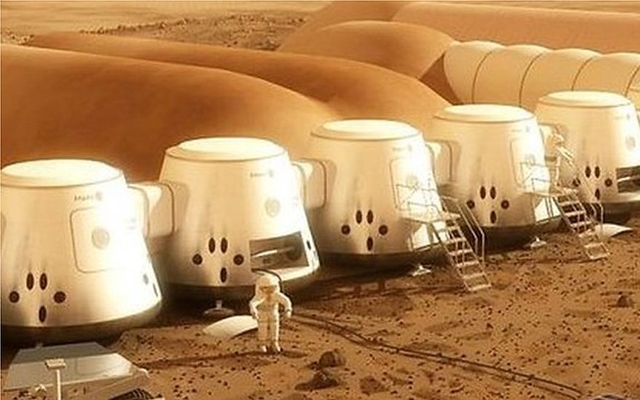Mars One is a Dutch not-for-profit foundation that has been working on a plan to start colonizing Mars since 2011. The astronaut selection process started in 2013, and the group of hopefuls has been narrowed down to 100 individuals, called the Mars 100. From this group, 24 will be chosen to travel to Mars in groups of 4, to live, work, and start a colony.
It sounds a little bit like a really exciting sci-fi adventure film, and the video introducing the project on the Mars One website makes it seem like just that too. The whole thing comes across as more of a Survivor-esque outer space reality show than something that is actually going to happen for real. But the project has lots of supporters and has been getting a lot of press lately.
The website explains that the chosen individuals will spend 8 years training for their big move. During that time, numerous cargo missions will transport supplies to the planet, and the living quarters will be built. The first flight to Mars, which is expected to happen in 2024, will take the first group 8 months before they actually arrive on the planet. Once they land, they will get right down to building a normal day to day life for themselves which will include regular exercise, growing and preparing fresh food, and researching their brand new planet.
The people who are chosen to make the journey to Mars will be agreeing to a one way trip. They will have to say goodbye to their friends, families, and lives here on Earth, and there is no way they will ever be able to return. Sounds terrifying, right? According to Mars One, the 100 individuals in the running have always dreamt of walking on Mars, and an opportunity to live there would be a dream come true.
One supporter of the project, Gerard ’t Hooft, a Dutch Nobel laureate, has come forward to say that the goals of the Mars One mission, while possible, are unrealistic in the time frame they are suggesting. He believes the project has a chance to come together in the next 100 years, but of course no one wants to hear that something they are working so hard on will never come to fruition in their lifetime.
A recent analysis of the Mars One plan by a team at MIT has also identified a few crucial flaws. The team predicts that even if the astronauts got to the surface of the red planet unharmed, the first person would suffocate within 68 days because of a lack of equipment to balance oxygen levels effectively. Breathable air should be a top priority in a mission like this, and the lack of a real plan for ensuring the safety of the people volunteering to go to Mars kind of brings the judgement of the people behind the project into question.
Outer space is one of the biggest mysteries still left largely unexplored by the human race, and it is no wonder that there are people who want to do whatever it takes to find out more about the other planets in our solar system. But the financial cost, and the possible risk to human life doesn’t seem worth it just yet. It will probably take years to develop reliable technology to aid in the colonization of planets that don’t have the oxygen levels human beings need to survive.
Right now, the only thing that comes to mind when thinking about human beings living on Mars is, what kind of terrible alien monster will they rouse from its peaceful hibernation? That is probably a result of watching too many sci-fi films, but you just never know.












